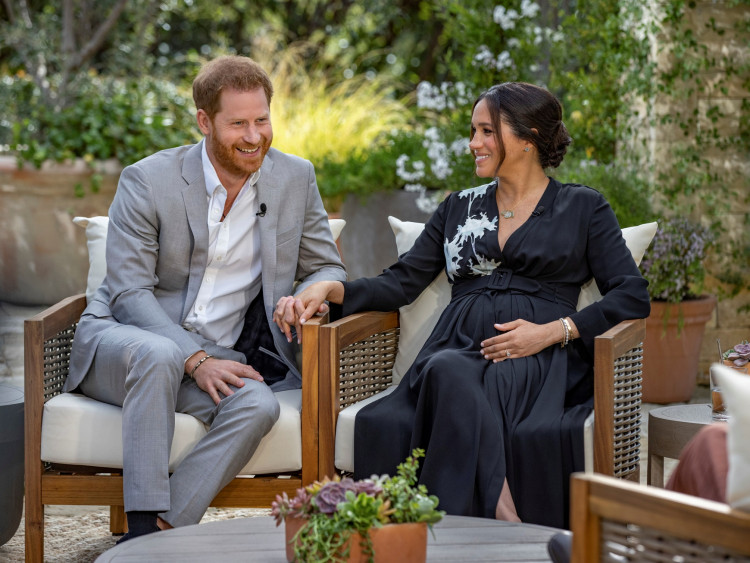Meghan Markle's candid remarks about her past trauma revealed during a new interview suggest that her bombshell Oprah Winfrey chat in March 2021 was not enough for her to heal, according to an expert. Meghan opened up once again about the suicidal thoughts she experienced while she was a working member of the Royal Family. This revelation came as she and Prince Harry spoke to CBS Sunday Morning's Jane Pauley about a new initiative supporting parents of children affected by online harm.
The interview marked the couple's first joint appearance in over three years. Meghan admitted she had contemplated taking her own life, saying, "I just didn't want to be alive any more." In the latest chat, she said she "hasn't really scratched the surface" of talking about her harrowing ordeal.
"I think when you've been through any level of pain or trauma, I believe part of our healing journey, certainly part of mine, is being able to be really open about it. And I haven't really scraped the surface on my experience but I do think that I would never want someone else to feel that way," Meghan explained.
For royal expert and historian Dr. Tessa Dunlop, this was a telling remark. She told the Mirror, "As the British summer erupted into angry protest, across the pond the New Model Royals sat coolly in Santa Barbara, legs crossed, eyes forwards, the epitome of togetherness."
Dr. Dunlop elaborated, "Cue Harry and Meghan doing what royals do best, promoting their latest initiative: a Parent Network for a new sort of horror, children who lose their lives because of insidious forces on the internet. Drawing from the New Model Royals' own playbook on pain, CBS anchor Jane Pauley forced the couple to take standard philanthropy that bit further and link their pain to those they are helping. Didn't Meghan once consider suicide?"
"The Duchess confessed she was not expecting the question," Dunlop continued. "Pauley noted it was uncomfortable for Meghan, who reached to touch Harry in just the way Pauley anticipated. Meghan was forced to admit there was a 'through-line' between her experience and those families who have lost a child to suicide."
Meghan emphasized the importance of openness in her healing journey, aiming to help others who might be experiencing similar challenges. "So, if me voicing what I have overcome will save someone, or encourage someone in their life to really genuinely check in on them and not assume that the appearance is good, so everything's okay, then that's worth it," she explained.
The couple's new initiative, The Parents' Network, aims to address the impact of social media on children and provide resources for parents. The couple's two children, Prince Archie and Princess Lilibet, serve as inspirations for their philanthropic work, particularly in protecting young minds from online harm.
However, Dunlop highlighted the broader implications of the Sussexes' work, suggesting that their philanthropic efforts could be seen in opposition to the British royal family's established brand. "In the style of their trip to Nigeria, soon Harry and Meghan will take off for Colombia, all in the name of service. And rather than being a service that complements the philanthropic brand the British royal family established, it will be in opposition to it," she remarked.
Dunlop concluded with a call for reconciliation, stressing that public communication and symbolic actions could help bridge the divide. "If only both parties could remember they are stronger together. That doesn't mean a reunited Harry and Meghan inside the royal fold, but public reconciliation and communication. Important symbolic words and actions which might just help our febrile nation to follow suit," she said.
Back in 2021, during their interview with Oprah, Meghan revealed she had experienced suicidal thoughts due to the immense pressure and lack of support she faced. "I was ashamed to say it at the time and ashamed to have to admit it to Harry, especially, because I know how much loss he's suffered," Meghan told Winfrey. "But I knew if I didn't say it, I'd do it. And I just didn't want to be alive anymore. And that was a very clear and real and frightening constant thought."






